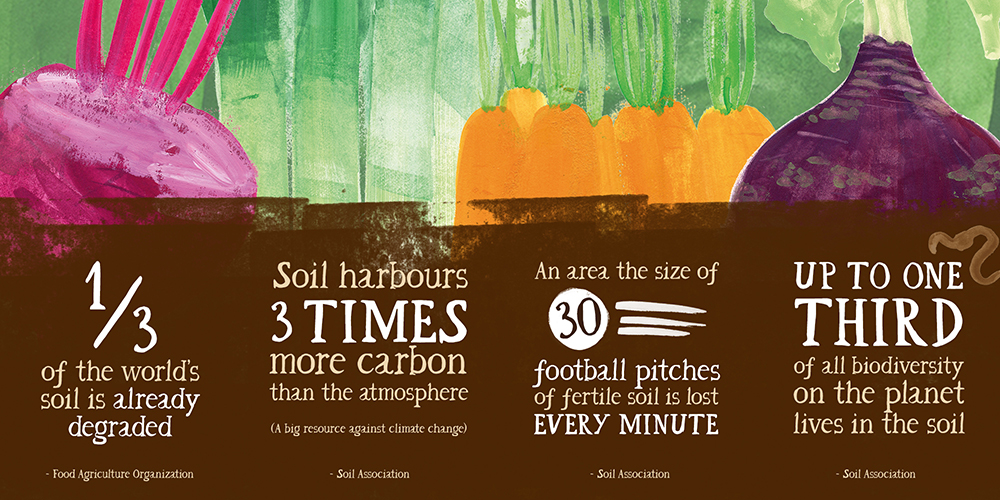From absorbing carbon to mitigating climate breakdown, to preventing flooding or drought and preserving biodiversity, there are so many reasons to care about the health of our soils. Soil holds three times more carbon than the atmosphere and as such plays a vital role in maintaining current global temperatures and helping to reduce further warming. But despite this crucial benefit, a third of the world’s soil is already degraded, according to the Food and Agriculture Organization, and an area the size of 30 football pitches of fertile soil is lost every minute.

Can farming ever lead to healthy soil?
Ploughing, cultivating and using artificial chemicals are just some of the ways in which farming damages soil. “As a farmer, the paradox is that almost everything we do to the soil is bad. It would be so much better happier and healthier if it was left either to pasture, or even better, trees,” says organic farmer Guy Singh-Watson. Obviously, ceasing to farm altogether is not an option most farmers will take. Growing grass to make sure soils aren’t left bare, using rubber-wheeled vehicles to reduce damage from driving, and applying organic matter such as green and animal manure are all ways farmers help soils recover from the strain of cultivation. While all cultivation damages soil, organic land shown to have 40 per cent more biodiversity than conventional, according to the Soil Association, thanks to no artificial chemicals being used.
What makes a good compost?
“Compost making is more of an art then a science; reading a book is a good start but there is no substitute for the doing, smelling and the feeling,” says Singh-Watson, echoing the sentiment of many home gardeners. That said, there are a few vital elements to match the needs of a healthy soil. Leaves and branches from household garden activities are collected by local authorities and used on farms, while chicken manure, used in the form of pellets, adds nitrogen. The physical structure and water content of compost is also important, with additions like large chunks of boxes can help maintain the oxygen flow.
Follow #worldsoilday and #stopsoilpollution on social media and help raise awareness, and watch the video below to find out more about what makes a healthy soil.












0 Comments